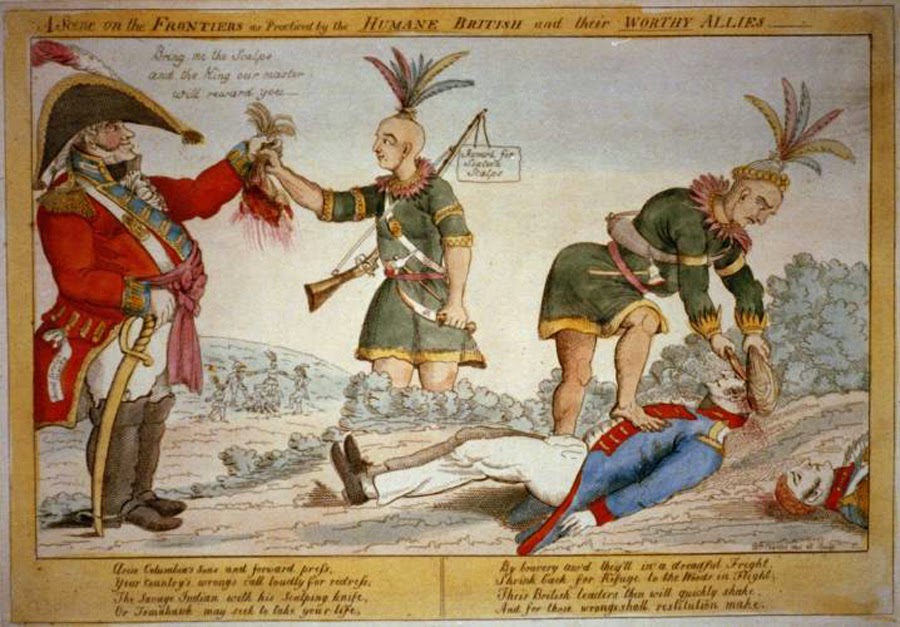Go West, young man, go West and grow up with the country — Horace Greely
As the 18th century faded into history, into old Southwest began a steady stream of settlers originating from the eastern southern states. Tennessee, originally considered as part of North Carolina, was opened up to settlement for the country’s war veterans of the Revolution. Likewise, the Georgia frontier became the Mississippi Territory for the same purpose. Having no means of rewarding the soldiers who actually established the nation, those seeking such, could obtain land as their reward for service to their country. Westward was the natural route of migration largely due to the fact that, as English colonies, the boundary of the British American Empire extended from the Eastern Seaboard all the way to the Mississippi River. Beyond that lay the possessions of his most Catholic Majesty the King of France. To the south, the Floridas, East and West, were the dominion of the King of Spain.
An Uneasy Peace
 |
Period satire showing the sentiment of the national
consciousness regarding the proxy-war that was being
waged against Americans by European enemies.
|
As the population of Anglo-Americans began pushing westward, ancient rivals saw little difference between these new Americans or the English from which they came. Both France and Spain had been ancient enemies and bitter rivals of Great Britain for the New World and neither wanted to accept that England had won that contest. Equally hard for the English to accept was the fact that they too ultimately had lost that fight to Brother Jonathan after suffering defeat in the American Revolution. Whether the goal was to contain American expansion as with the French and Spanish, or set the stage to ultimately repossess it’s former North American colonies as with the English, all antagonists waged a silent war by the same strategy, employ America’s native population to do the fighting for them. Such had been the case since the 1600’s along the East Coast. Now, that tactic would be employed all throughout the south.
‘God willing and the Creek don’t rise.’ - Benjamin Hawkins
In May of 1812, John Crawley and Jesse Manley had been away from their homes together on a journey to obtain corn for the planting season. Upon returning to their homes along the Duck River, they soon discovered life as they knew it had ended in an afternoon of horror that would eventually lead to the complete expulsion of native people from Tennessee. A war party of Creek Indians led by the reprobate Little Warrior had attacked and brutally murdered members of Crawley’s and Manley’s families including several children. Little Warrior was a willing disciple of the great Shawnee Chief Tecumseh as well as a vocal advocate of Tecumseh’s proposed Indian Confederacy that would restore the Indian nations to their former glory. The previous year of 1811 saw Tecumseh on a pilgrimage among the Five Civilized Tribes of the South. At the village of Tuckaubatchee in present day Alabama Tecumseh stirred the soul of a warrior nation...
The Muscogee was once a mighty people. The Georgians trembled at your
war-whoop, and the maidens of my tribe, on the distant lakes, sung the prowess
of your warriors and sighed for their embraces...Oh! Muscogees, brethren of my
mother, brush from your eyelids the sleep of slavery; once more strike for
vengeance; once more for your country...War now! War forever! War upon the
living! War upon the dead! Dig their very corpses from the grave. Our country
must give no rest to a white man's bones. This is the will of the Great Spirit,
revealed to my brother, his familiar, the Prophet of the Lakes. He sends me to
you. All the tribes of the north are dancing the war-dance. Two mighty warriors
across the seas will send us arms. Tecumseh will soon return to his country. My
prophets shall tarry with you. They
will stand between you and the bullets
of your enemies. When the white men
approach you the yawning earth shall swallow them up. Soon shall you see my arm of fire stretched
athwart the sky. I will stamp my foot at Tippecanoe, and the very earth shall
shake.
 |
| A Creek Warrior, ca. 1812 |
Whether or not Little Warrior was in attendance at Tecumseh’s speech is unknown. What is known is that Little Warrior was returning from a great council of war in the north called by Tecumseh when he and his warriors fell upon their hapless victims along the banks of the Duck River in Tennessee. The Creek warriors had drawn first blood in the prelude to what would become all out war the following year. Tecumseh’s call for blood in the south had gone forth. Now the men of South would answer.
